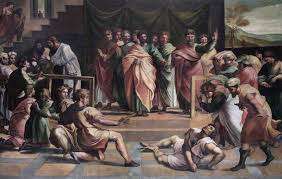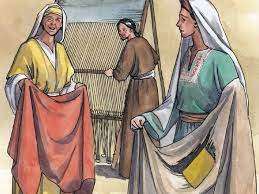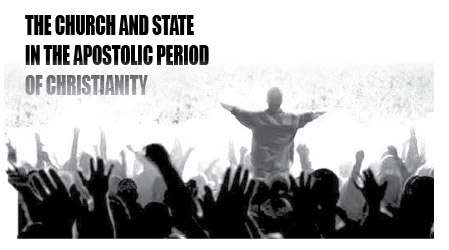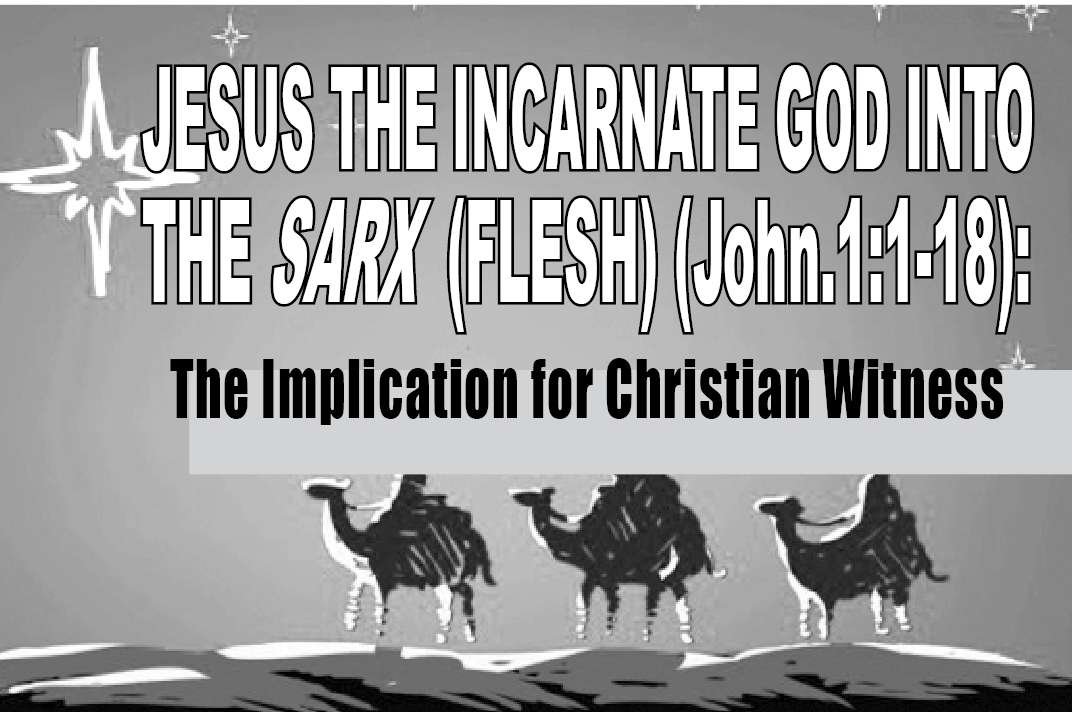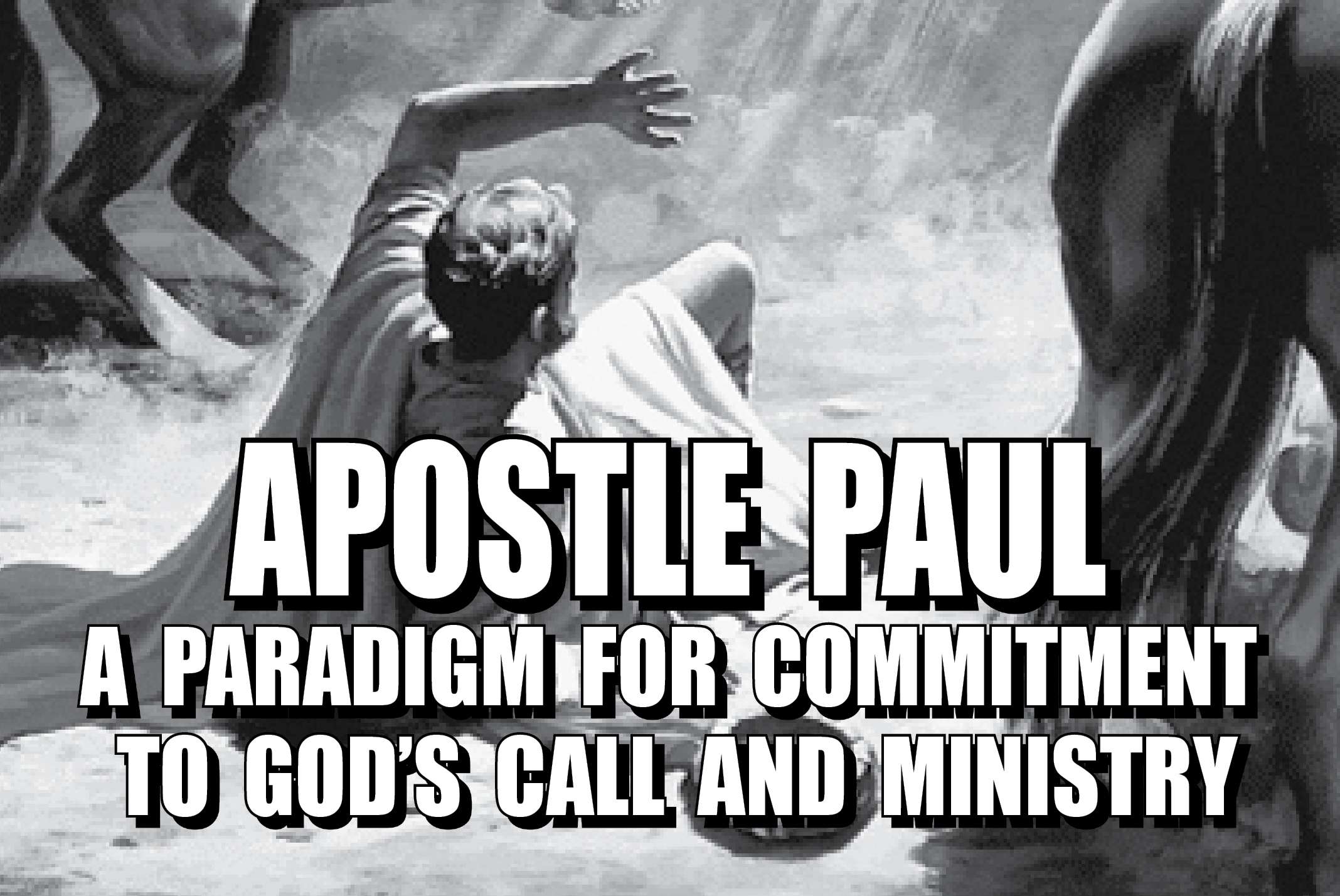

The Idea of Generosity in the Early Ecclesia and its Implication for Today
Dr. Jose L.
The idea of generosity must be discussed in the light of creation theology where God’s provision in the universe is for every one and it must be equally distributed.Moreover, the generosity of God includes the spiritual as well as the economic justice of God for the whole humanity. In the creation story God entrusted the responsibility of administering the universe upon humanity (Adam and Eve). However, the generous provision of God has been exploited by the human and later by the nations due to their sinfulness and selfishness. They accumulated the liberal resources for their own greed and it resulted in great diversity between the rich and the poor, and the advantaged and disadvantaged.
If God is generous and gracious why is there inequality in the body of Christ? If God through Jesus became poor in order to make us rich, why only few received its blessing? What is the role and relevance of ecclesia of Christ in a world gripped with exploitation at all levels? How can the ecclesia of Christ reflect the generous nature of God?The answer to these questions might bring some solutions to the issues that we face today.
The Idea of Generosity in the Gospels
The Gospels portray the generous nature of Jesus by doing good to all, by preaching the good news and healing the sick.The miracles of Jesus are seen as an act of great benevolence. As a result, the ethical demand for the disciples is to imitate the benevolent nature of God through their lives and actions.
Generosity is described in the Gospels through the teaching and ministry of Jesus towards the weak, poor and the lost (Matt.11:5, 28ff; Mk.10:26ff; Lk.15).Moreover, generosity is the gracious reward in God’s kingdom (Matt.20:1-16) and the pardoning act of Jesus exhibited through the parables (Lk.13:6-8; 7:36-50; 19:9f.). In the Sermon on the Plain, Jesus calls his hearers to ‘lend without expecting anything back. … because he is kind to the ungrateful and wicked. He asks them to “be merciful, just as your Father is merciful” (Lk.6:35,36). In a context in which exploitation of the poor was prevalent, Jesus asks the rich for the generous distribution to the poor, the crippled, the lame and the blind (Lk.14:12; cf.14:21) in the context of exploitation of the poor was prevalent. Jesusal so provided for the multitude by ‘giving thanks,’ ‘breaking the bread and the fish’ and ‘gave them’ generously (Mk.8: 1-10; Mt.15:13-39: Jn.6:1-13). In the ‘Manna economy’ or the ‘Jubilee economy’ of Jesus, there is no exploitation or accumulation rather gives everyone according to their need.
The idea of Generosity in Acts of the Apostles (Ac.2.43-47; 4:32-37)
The word generosity must be studied in the first century Greco-Roman context where wealthy patrons were generous benefactors (euergetes) of beneficent service (euergeteo). In the ancient culture, the beneficiaries were the clients who always depended on the benefactors. Usually an appropriate response may not be possible because of the great socio-economic gap between the patron and the client. However, the expressions of gratitude are solicited. The Roman emperors were considered as universal patrons and rich benefactors.
The first century ecclesial stories of generosity are narrated in the first few chapters of the Acts of the Apostles (Ac.2:43-47; 4:32-37). In the Greco-Roman context, the socio-political power was attached to wealth. The infant ecclesia practised the generosity of God through their lives. This recorded in Acts 4:34- 35 “There was not a needy person among them, for as many as owned lands or houses sold them and brought the proceeds of what was sold. They laid it at the apostles' feet, and it was distributed to each as any had need.”However, in course of history, the attraction towards the opposite principle of accumulation brought tragic death to the ecclesial life (eg.Judas, Ananias and Sapphira (Ac.5:1-11). Through the generous giving, the church shows the abundant grace of Jesus as well as this becomes the ministry of the church as it grows to the wider Greco-Roman world outside Palestine (Ac.11:28-30; 20:35).
The Idea of Generosity in Pauline Epistles:
Paul not only planted churches in the Greco-Roman world, he also raised funds for the poverty stricken church in Jerusalem. He exhorts the newly raised churches to support the financially weaken body through their material support. For him preaching the gospel includes the restoration of the spirit and body through enriching one another. Through the generous giving they will reflect the genuine love of Christ as well as thanking God for the ‘indescribable gift’ (2 Cor.9:15).
Paul elaborately illustrates the ideology of generosity in the context of his missionary work, his understanding of God (his theology) and his pastoral concern as he writes to the Corinthian believers (2 Cor. 8-9). Paul explains Jesus as the paramount example of God’s generosity and Jesus Himself exemplified it by giving His life for the whole humanity (for the whole world) to redeem it. Pauline theology is integral to the practical action/ethics. He exhorts the predominantly Gentile churches (Macedonia and the Corinth), to contribute generously to the poor believers in the church at Jerusalem (1 Cor.16:5-6; Ac.19:21; Rom.16:26) and they did so. This offering is an expression of their response to the generous blessing they received from the Lord, both their material and spiritual blessing. He uses the word ‘rich generosity’ in the midst of ‘deep down poverty.’ (2 Cor.8:2, 7, 9).
‘Charis’(2Cor.8:9) is a favourable word Paul uses in his epistles to reflect Christ’s generous act through his life and sacrifice. According to him, Jesus Christ is the model of grace. He depicts generosity as a concrete sign of divine grace and God’s grace results in action. Similarly, Paul admonishes his readers to reciprocate the grace of God in the action of giving, because in Paul’s understanding ‘grace begets grace.’ “The character of divine grace in Christ was fully recognized and responded to when the recipient became a vehicle of that same grace to others (2 Corinthians 8-9).” (The Theology of Paul the Apostle, 323).
Paul is connecting the grace (charis) of God with God’s love in action, so that the financial sharing will go beyond the borders through fellowship (koinonia) through the service (diakonia). “For you know the generous act of our Lord Jesus Christ, that though he was rich, yet for your sake he became poor, so that by his poverty you might become rich” (2Cor.8:9).This gracious act of God has gone to the extent of giving his life as a sacrifice for the entire humanity. Paul describes this as the ‘surpassing grace’ and the ‘indescribable gift’ (2Cor.9:14,15; cf.1Cor.1:4). It is the free gift (charisma) of eternal life God offers for the entire humanity (Rom.5:15; 6:12-23). In this context Paul also uses the special gift of charisma (service, teaching, beneficence and compassion; Rom.12:6-8) for the service of the community (Rom.12:1-21; 1Cor.12:1-31).
Paul also uses the term charis to refer the gracious acts of God in our lower estate (Rom.7:25; cf.1Tim.1:12; 2Tim.1:3). One must always thankful to God for this grace/ generosity in our lives (1Cor.3:16; 16:3; 2Cor.8:6,7,19). Thus, Paul admonishes the churches to respond to God’s generosity through gratitude and obligation (Rom.1:21; 12:1; 1Cor.4:7; 6:19-20; 2Cor.8:8-9; Gal.2:21).
He also uses a metaphor of sowing and reaping (2Cor.9:6-15) since the generous sowing will result a generous harvest. Paul brings four theological significances through the generous act of giving. This reflects God’s concern for the poor, and it will unite the Jews and the Gentiles in a noticeable way. Moreover, it also enlarges the Gentile mission and giving is an act of worship (Rom.15:25-32). For Paul spiritual and material blessing are generous gifts from the Lord and it should not be used for selfish gain rather for sharing. Paul also commends a cheerful giver (2Cor.9:7).
Implication for the Present Ecclesia
The present day spiritual and economic model is one of profit making at the expense of others. The capitalist model of spirituality leads towards spiritual exclusivism. Similarly, the capitalist model of economy leads the rich to become richer and the poor becomes poorer. Accumulation and individualism become the rule of the day. Generosity and communitarian feeling loses its hold in the church where ‘heroism’ becomes more prominent.
The New Testament church was formed in the midst of severe persecution and poverty. Poverty was a reality in the first Century ecclesia in the context of economic exploitation of the policies of the Roman Empire.It was the exploited poor who responded to the Gospel in all over the Greco-Roman world. The generous giving of the ecclesia unites people and serve as an antidote to the problem of Jew-Gentile division. Moreover, it will bring a great witness in a persecuted world and the impressions made on outsiders the relationships within the church.
The generosity of God and the biblical model of spirituality and economics are very much significant for the welfare of the entire humanity, especially the body of Christ. God’s generosity is reflected in the nature of our giving the blessings to others. It is against the creation theology when humanity exploits its resources and its generous gifts, whether it is spiritual or material for its exclusive use. God’s resources are generously given and it must be available to all equally because he provides rain and the sun for the righteous and the wicked equally (Ac.14:17; 17:25-28).
Paul’s expression ‘their extreme poverty welled up in rich generosity’ explains the way one should respond in the most practical manner to the saints who are in need. The act of generous giving will destroy the hostility on the basis of nationalism and demonstrate the unity of the multi-cultural, multi-racial, international and continental wings of the church. Paul explains the sacrificial gracious nature of Jesus as the model for the ecclesia to follow.

